30 million eggs and “fashion conscious” bunnies: Inside the Cadbury factory at Easter
As we prepare to gorge ourselves on ridiculous numbers of eggs, Cadbury has confirmed the truth behind a longstanding chocolate rumour.
The colour of the packet is the same, the brand on the packet is the same, but chocoholics have always had the lingering suspicion that’s what’s inside isn’t - actually - quite the same.
Many Cadbury fans have long suspected that the chocolate we get in Australia differs to Cadbury bars overseas. That a Dairy Milk bar in Melbourne tastes different to a Dairy Milk bar in Manchester.
Now Cadbury has conceded the rumours are right. But the change in taste is nothing to do with, as some believe, because there’s a special anti-melt agent to stop the bars melting in the Aussie heat. Nope, the real issue is simple: Tasmania.
RELATED: Cadbury Marble chocolate bar returns to shelves
RELATED: Stark warning that radical action needed to keep the chocolate flowing
Right now, Cadbury staff are kicking back after churning out some 12 million chocolate bunnies and no fewer than 300 million eggs to sate the voracious appetites of Australians and New Zealanders.
Earlier this year, news.com.au was given access to the chocolate factory where those eggs are made. As well as detailing the truth behind the rumour, Cadbury’s Easter supremo – a full time all year-round job – also revealed the Easter egg that was a global smash but that Australians couldn’t stand.
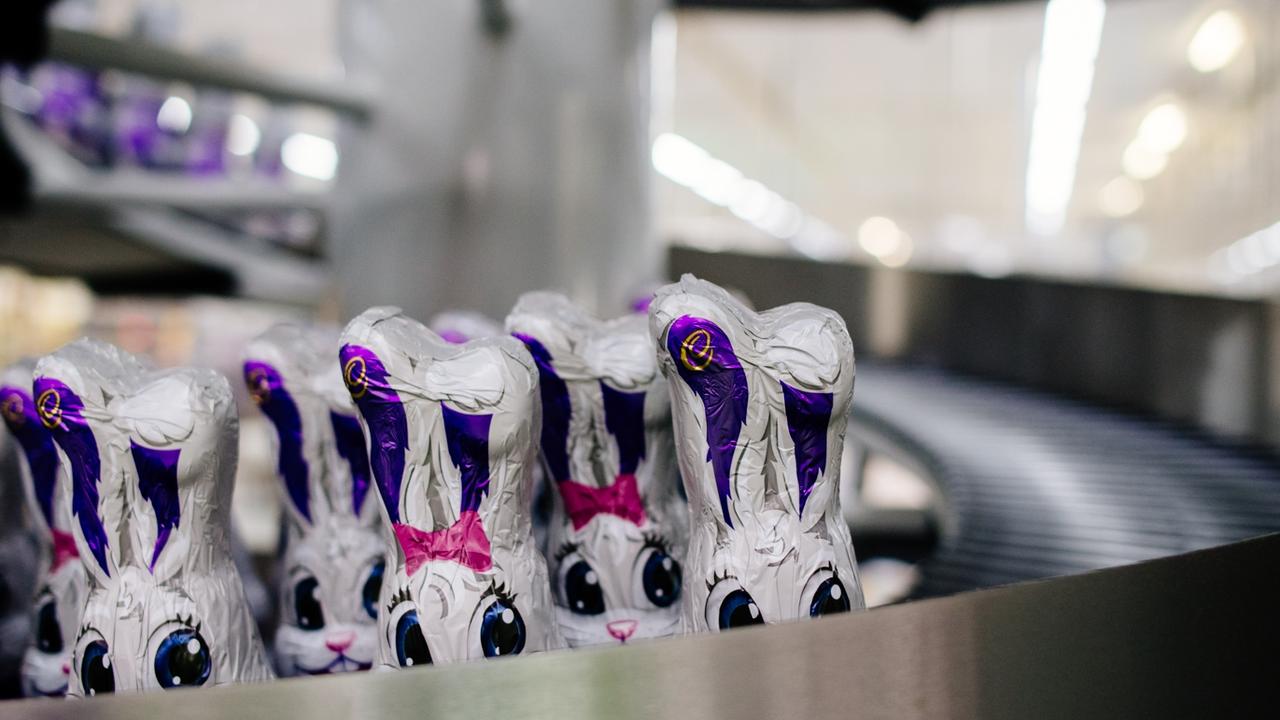
The venerable brand, founded in 1824, has a 65 per cent market share of chocolate in Australia, more than even its native UK.
Now owned by US snacks giant Mondelez, which also makes Oreo biscuits, Pascals lollies and – for some reason – Philadelphia cream cheese, Easter egg central is in Ringwood, a suburb about half an hour north east of Melbourne’s CBD.
Those hoping for something straight out of the mind of author Roald Dahl might be disappointed. The Cadbury factory is less Willy Wonka and more workplace health and safety. Everything is spick and span, high viz, and cordoned off – so you don’t end up like Augustus Gloop being accidentally carried away on a chocolate river.
But there are flashes of sweet magic. Many of the conveyor belts and chutes are painted Cadbury purple. Famous chocolate bar names pop up on the grounds – “Cherry Ripe Way” here, the “Crunchie Room” there. And one, somewhat faded, sign points 17,000 km away to Cadbury’s home suburb of Bournville in Birmingham.
However, it’s the smell that gets you. It’s just a delicious as you dreamt of. Toasty and creamy, a touch roasted, it hangs thick in the air like a welcoming hug of cocoa.

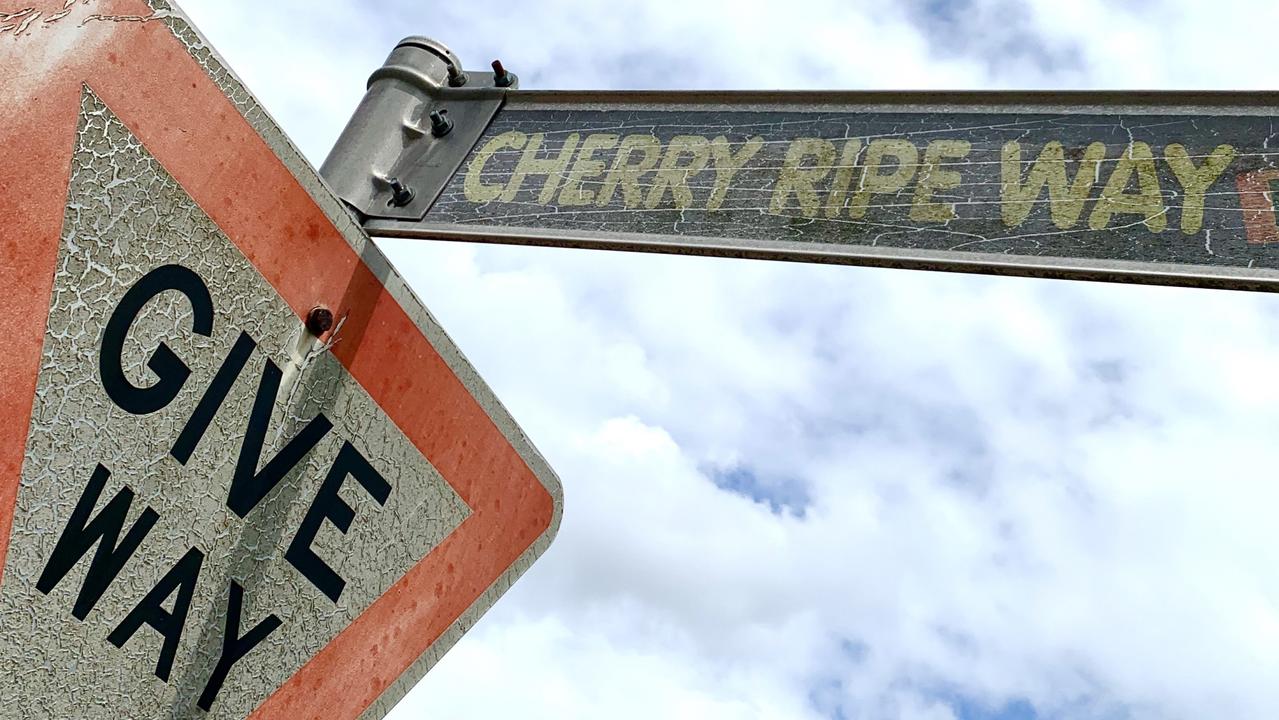
FASHION CONSCIOUS BUNNIES
Meaghan Brodie, Cadbury’s brand manager for Easter chocolate, is our guide. She explains chocolate bars, like Crunchies and Picnics are made here, as well as Easter confectionary while Dairy Milk bars are produced in Hobart.
Ms Brodie’s focus has been on the Cadbury bunnies that have had a facelift this year; they’re sassier.
“We’ve tried to make the bunnies more fashion conscious, a bit cool for teens. We've got bunnies with sunglasses and bandannas,” she says as Humpty Dumpty eggs zoom along a belt below.
This year Caramilk eggs and an expanded range of Old Gold eggs, the latter to appeal to more grown up palettes, will make their debut.
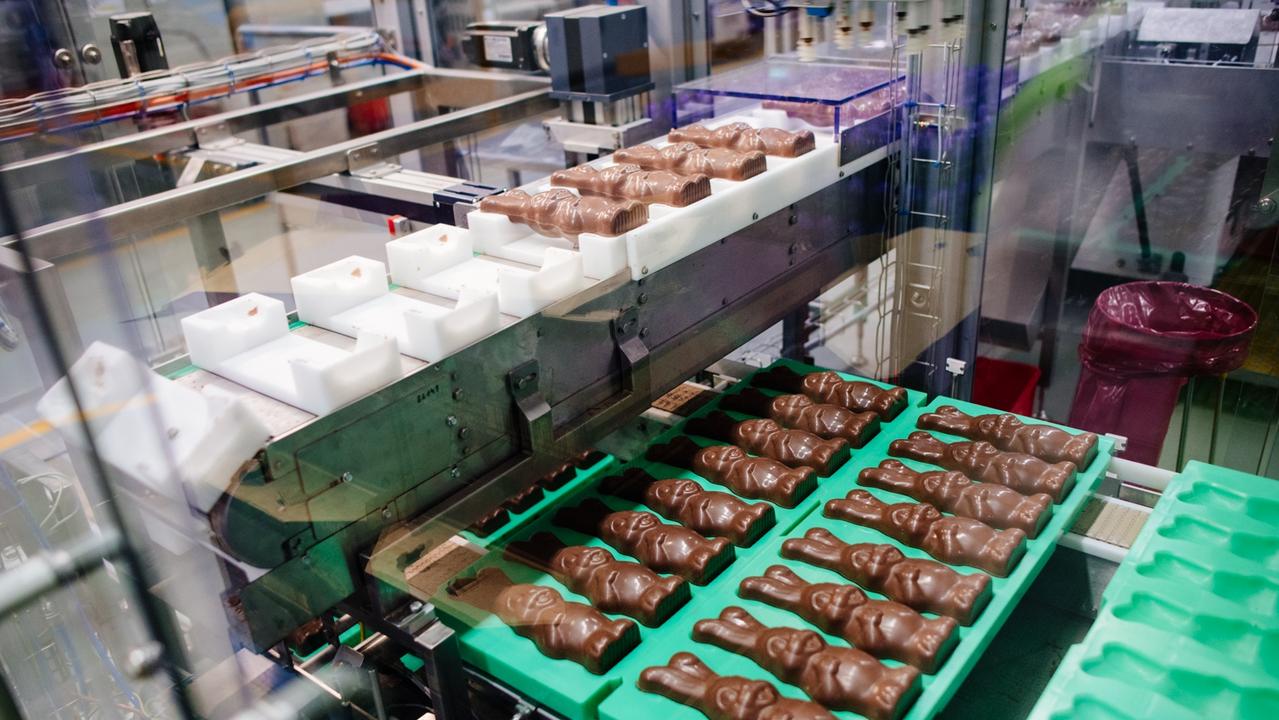
The firm pumps out seasonal chocolate at Christmas too, but it’s not a patch on Easter.
“At Christmas you've got multiple products you’re competing with – cherries, biscuits and wine. But Easter is a chocolate event, it’s about giving eggs and bunnies.”
Ms Brodie is already working two years ahead, planning on what eggs we’ll be salivating over in 2022.
She won’t reveal what those new eggs will be, but she does give a clue: “The trends we’re seeing are things like dairy free, so we may look at that for Easter.”
Another trend is sustainability. Mondelez describes its self-administered “Cocoa Life” program as “tackling the complex challenges that cocoa farmers face, including climate change, gender inequality, poverty and child labour”.
Ms Brodie concedes not all her products carry that label yet. “Some of our eggs are, but we need to catch up and get them all to Cocoa Life,” she says.
HOW THE EGGS ARE MADE
At one end of the factory, which is also featured in an SBS documentary on Saturday, is the aptly named “chocolate room”. It’s hot and humid and feels like the belly of a giant ship.
Here cocoa crumb is whipped and swirled into liquid chocolate which gently slides its way out of huge vats. The silky chocolate is then poured through giant vibrating sieves to remove any sugar crystals before it’s pumped through pipes – one labelled milk, one dark and one Boost – to where its extruded, poured or moulded.
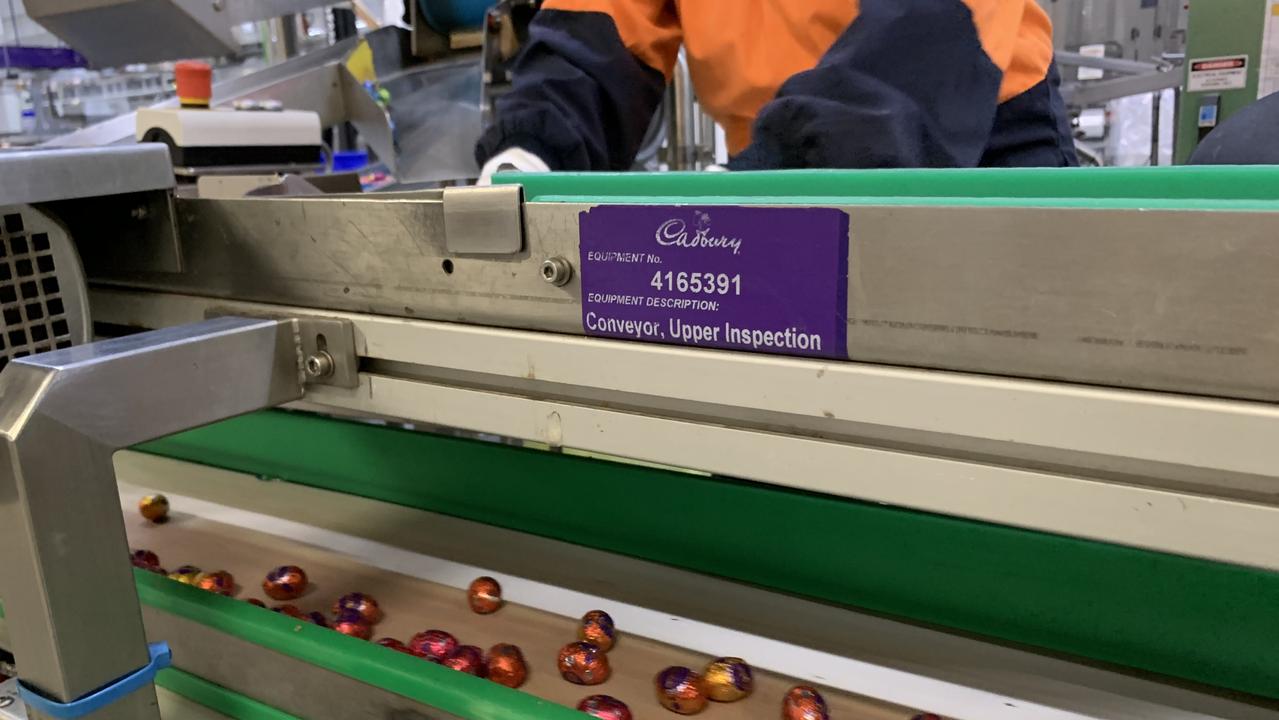
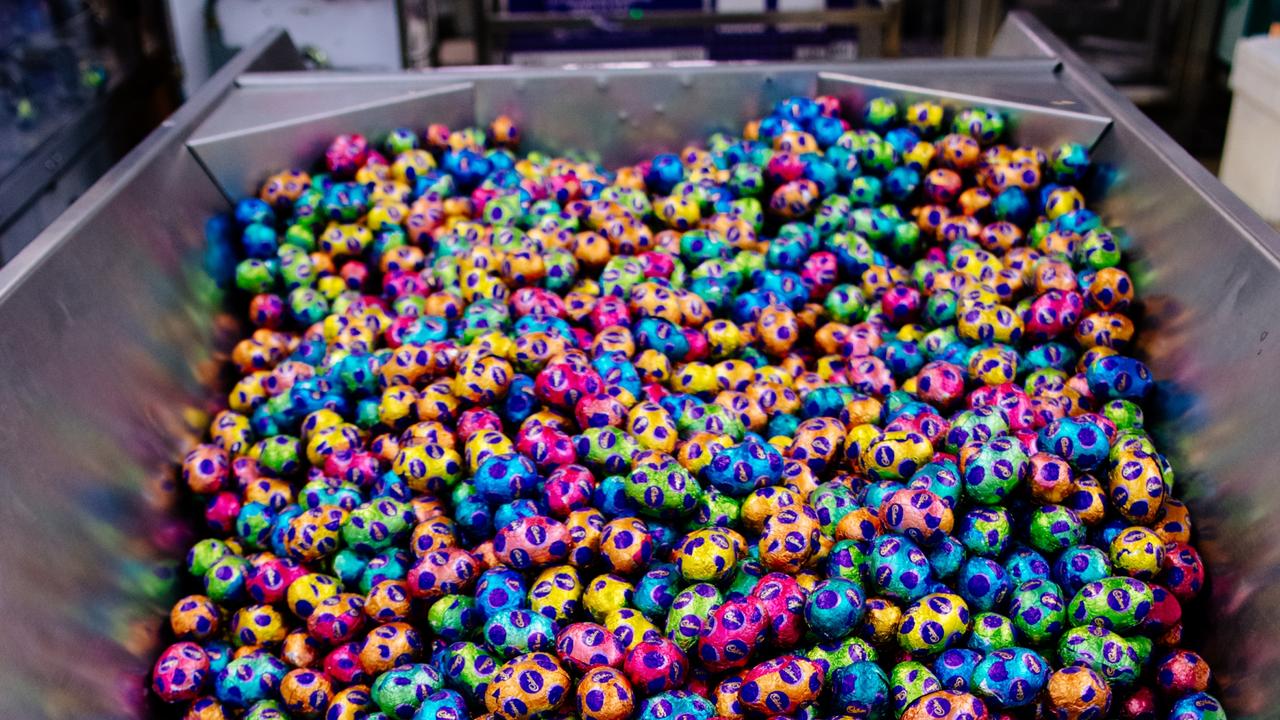
For solid eggs the molten chocolate is poured into half egg moulds that are then clamped together, cooled down and shaken free. Not unlike how you’d make eggs at home – just loads more of them.
Hollow eggs have a more complex process where a dollop of chocolate is poured into a mould which is then spun at high speed, the force pushing the warm liquid to the mould’s edge. Again, it’s snap cooled and then a machine rather uncouthly bashes out the eggs which are then sent hurtling toward a giant spool of bright, perky wrapping that enrobes each one.
A diligent staff member checks for cracked or damaged eggs which are yanked off the line, their Easter journey at an early end.
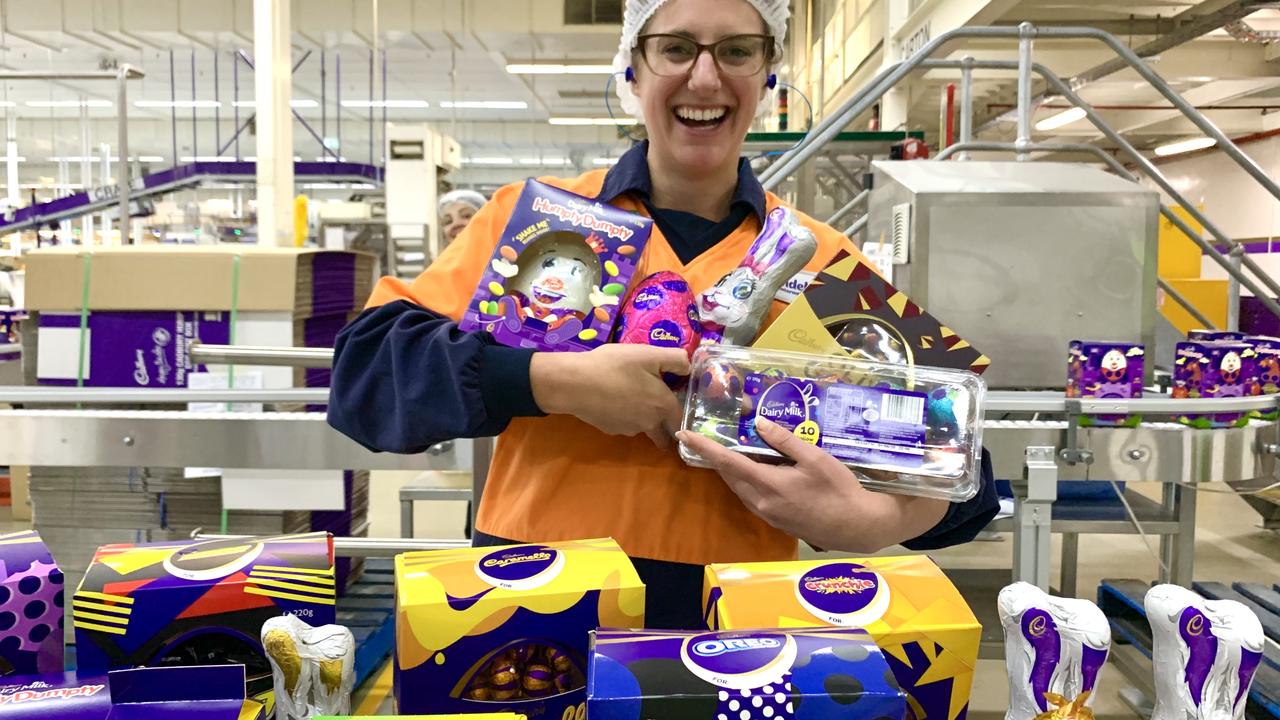
DAIRY MILK DIFFERENCE
As a gooey lolloping curtain of sweet caramel pours out of a hole in the ceiling onto naked Picnic bars, Ms Brodie reveals that it is true that Dairy Milk bars can taste different from one nation to the next. Just ask British backpackers, who swear blind Bournville-made Dairy Milk bars differ from their Ringwood counterparts.
It’s not the raw cocoa, most of which comes from Ghana and is used in all global Cadbury bars.
“It’s about the milk which makes up a substantial part of the product. Cadbury Dairy Milk is made with a glass and a half wherever it’s made.,” she says.
“But we use Tasmanian cows and they are different to UK cows. So, the chocolate always tastes different because it depends on the milk that you're using and that brings through the flavour.”
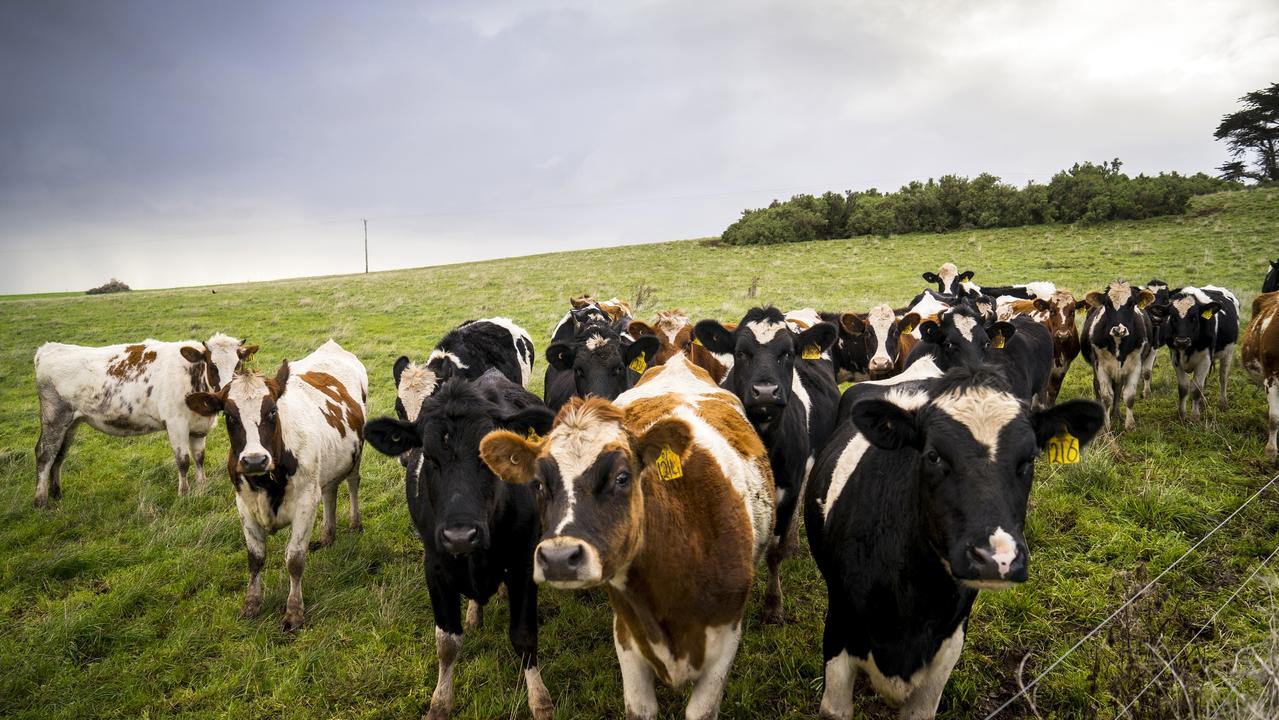
EASTER EGG AUSTRALIA REJECTED
Australia often serves a testbed market for products that later go global. Marvellous Creations and Cadbury Dark Milk bars both debuted here before finding their way to supermarkets from Dublin to Dusseldorf.
Cadbury’s new logo, a more cursive rendition similar to the original signature, will be rolled here before anywhere else.
But there was one Easter egg that came in the opposite direction, from Europe, that Australians never took too.
Called Cadbury Egg and Spoon it consisted of a cardboard crate containing four mousse-filled chocolate eggs. It came with a spoon which could use to scoop out the moose.
“It worked really well in the UK and so we brought it out here but it just didn’t resonate. People didn’t quite understand it or that ritual of sitting there and eating it like that – it didn’t do that well,” says Ms Brodie.
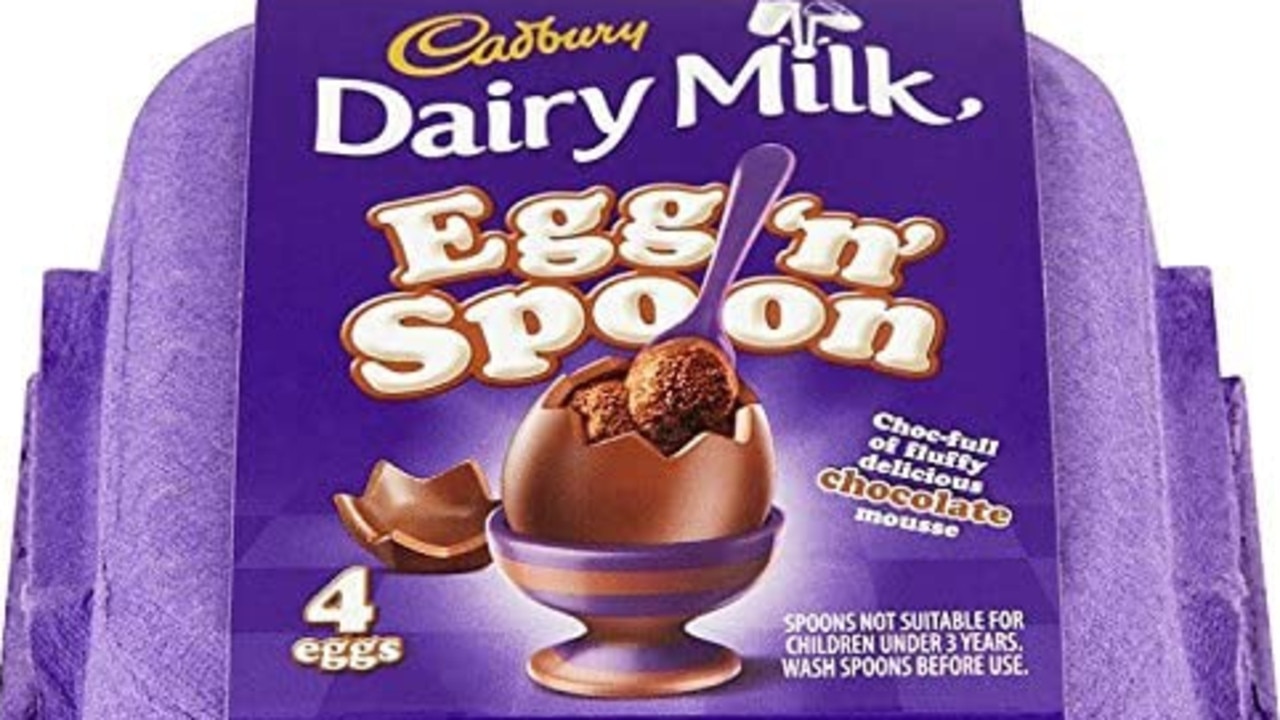
There are also no plans for Australiana-themed Easter novelties – no Dairy Milk kangaroos or koalas. Even the chocolate bilby has gone the way of the dodo.
Australians know what they want, Ms Brodie said: “It’s all about the bunny.”
This factory’s lifeblood is thick, sugary, all-too tempting chocolate. The place runs on the stuff; you feel you could put on the pounds just by breathing in. Has the company ever considered making lower fat eggs for more health-conscious times?
The very idea, says Ms Brodie.
“Easter is a celebration and that involves chocolate, it’s something that people look forward to, and they love Easter eggs and the thinness of the chocolate.
“They wait for them as soon as they get to the stores in January.”
In short, don’t expect the factory at Ringwood to start pumping out some non-indulgent chocolates for one of the most indulgent times of the year anytime soon.
If you want to go behind the scenes where all the Cadbury eggs are made, SBS will air The Chocolate Factory on Easter Saturday at 7:30pm.
The reporter travelled with the assistance of Mondelez Australia.
Originally published as 30 million eggs and “fashion conscious” bunnies: Inside the Cadbury factory at Easter




